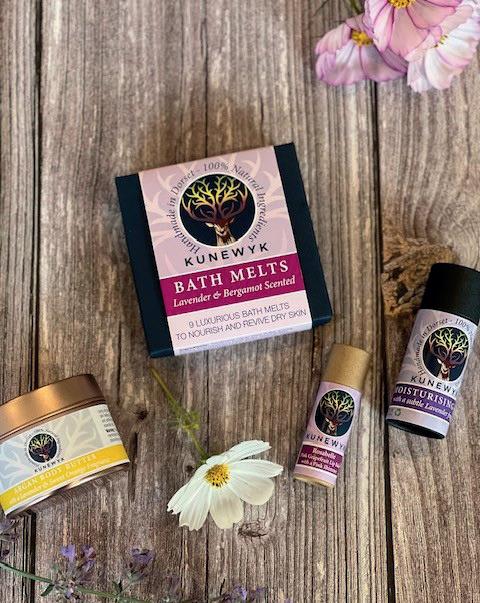
5 minute read
Health & Wellbeing
Local charity awarded grant to provide counselling to young people
DO you know a young person who needs help with their mental health?
The Wiltshire Council Salisbury Area Board has awarded a generous grant of £5,000 to mental health charity Family Counselling Trust (FCT).
The grant will fund counselling sessions for 16 families with young people (aged 13-18 years old) from Salisbury and the surrounding areas.
FCT offers low cost, early intervention counselling to children, young people and their families (predominantly on lower incomes) in Dorset, Hampshire, Somerset and Wiltshire.
Young people and their families can apply for six counselling sessions with a qualified and experienced psychological therapist at a contribution from just £5 per session.
FCT is an early intervention service treating mild mental health conditions such as anxiety, low moods and challenging behaviour.
And there is no need to visit the GP first, instead, help can be requested directly by visiting www.familycounsellingtrust. org/get-help.
Alison Sankey, chair of Family Counselling Trust Wiltshire said: “We are most grateful to Wiltshire Council for its generous grant. It has been a difficult few years for families due to the pandemic, the cost of living crisis, and the NHS being unavailable for milder mental health problems.
“We want local families to know that help is available for young people experiencing challenging times. Please do get in touch.”
If you know a young person who is struggling with their mental health you can find out more about Family Counselling Trust, and how you can access or support their service at www. familycounsellingtrust.org
If you are worried about a child’s mental health, support is available Credit: Katie Gerrard/Unsplash
Novel ways to save money
Words by Francesca Tyer
WITH the cost of living crisis becoming more prevalent, now more than ever it is important to cut back on costs.
Beyond trying to save on petrol use and energy bills, there are other, less common ways, to save yourself a little cash.
You don’t have to be creative to save money. Cook meals in bulk and use leftovers for lunches or freeze them.
Make Christmas cards out of old ones – simply cut out and stick onto a new back.
For maximum efficiency, shop every three weeks. This will save petrol costs, minimise spending opportunities and ensure you use up the food already in your cupboards.
NUTRITION & WEIGHT MANAGEMENT COACH
Fed up with yo-yo dieting?
Want to improve your overall nutrition & diet?
SUPPORT WITH
Losing, maintaining & gaining weight Nutrition for sports & exercise Vegan/vegetarian diet Pre & postnatal diets
Don’t be too embarrassed to get your prostate checked out
Probus Club of Sarum welcomed retired BBC reporter Andy Jones to its meeting on November 25.
Andy, who had spoken to the club before about his long BBC career offered a very contrasting topic at the most recent event.
As a past sufferer from prostate cancer he gave a very erudite and memorable talk about the disease.
He reminded his audience that every 45 minutes somebody dies of the disease in the UK.
Considering that it may take as long as 15 years before symptoms spread there is ample scope for improved early intervention. 60% of men have prostate problems at age 60.
This proportion grows to 70% at age 70.
One of Andy’s key themes is, do not procrastinate because you are embarrassed.
Andy used a number of colourful home-made models to give his audience an appreciation of the physiological intricacies involved and to illustrate the variety of modern interventions.
He reminded the listeners that Herophilus, the Alexandrian physician, first identified and described the prostate gland in the 3rd century BC.
It took nearly 2,000 years for European medicine to catch up.
Andy’s talk was followed by lunch with the club members.
The club meets every other Friday at the White Hart Hotel. Its members are retirees who value intellectual stimulation as well as a sociable atmosphere.
The club welcomes guests and new members.
Call 01722 392 043 for more information on how you can visit a meeting or join the group.
Health & Wellbeing Harnessing your breath can help you manage fight or flight response
Words and photo by Claire Sankey
THE stress response (‘fight or flight’) is how our body prepares us for danger. It’s initiated when our brain perceives a threat and sends stress hormones into the body to get us ready to fight or run.
However, our brains are not very good at differentiating between real and imagined danger (e.g. anxious thoughts or memories) and so our stress response gets switched on (or ramped up too high) when it isn’t needed, resulting in unnecessary tension in the body and mind.
This build-up of stress can result in anxiety and physical health problems like high blood pressure and a suppressed immune system if left unmanaged.
We all have a powerful, safe and free tool to help us manage stress; the breath. We can harness the power of our breath to teach our body that we are safe so that the stress response can switch off and our relaxation response can switch on.
Using our breath to elicit the relaxation response was first developed in the 1970s at Harvard Medical School by cardiologist Dr Herbert Benson who was largely credited with demystifying meditation.
However, these techniques have been used by yogis and meditators for thousands of years.
Follow these steps to use your breath to support your body in its relaxation response: ● Sit quietly and notice your breathing ● Breathe through your nose if possible ● Breathe deeply into your belly – pushing it in and out so it inflates and deflates like a balloon ● Focus on elongating your exhale. You can count in for 4 and out for 6, 7 or 8 ● Continue for a few minutes.
Taking a few minutes to breathe like this each day will help support you in moving towards lower stress levels and increased well-being.
To learn more about how to manage stress through meditation, mindfulness and breathwork, join Claire’s next 8-week course starting 9 Jan. www.clairesankey.com/events Claire Sankey is a mindfulness, yoga and somatics practitioner who teaches individuals and groups to manage stress and anxiety.

Use discount code Magazine10 for 10% off your first order.
















